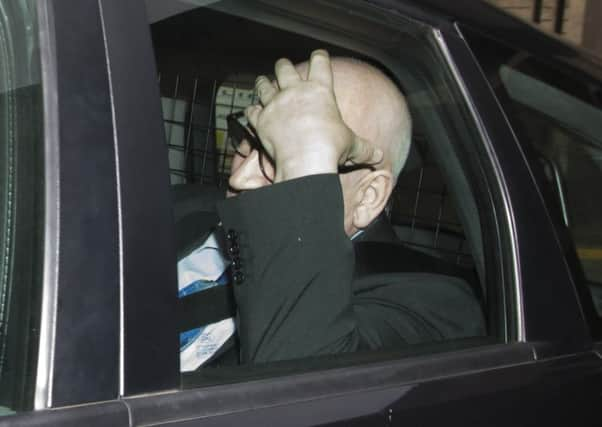Glasgow bin lorry crash victim’s family ‘let down’


The decision not to prosecute the driver of the bin lorry that crashed in Glasgow city centre killing six people has made it “more difficult” for the family of one of the victims to deal with the death, the Fatal Accident Inquiry has heard.
A lawyer representing relatives of Jacqueline Morton said they feel “let down by the justice process” and believe there was “sufficient evidence” to pursue a criminal case against Harry Clarke, who was unconscious at the wheel of the truck when it crashed three days before Christmas last year.
Advertisement
Hide AdAdvertisement
Hide AdThe FAI into the tragedy, now in its sixth week, has previously heard evidence that Mr Clarke, 58, has a history of dizzy spells and fainting which he failed to disclose to the DVLA and on job application forms.
Mr Clarke is said to have previously fainted while working as a bus driver in 2010 but to have not disclosed the incident when he joined Glasgow City Council.
The Crown Office said in February that no charges would be brought against Mr Clarke and the relevant information had been taken into account regarding a decision not to prosecute.
Advocate Dana Forbes, representing the Morton family, said Mr Clarke “could not be trusted to tell the truth on his medical history” and “plainly sought to mislead doctors”.
In her closing submission to the inquiry, she said the driver had misled the DVLA over a 14-year period and had shown “a reckless indifference” to the need to disclose health information on his fitness to drive, and in turn demonstrated “complete disregard for public safety”.
Finishing her statement, Ms Forbes said: “It is submitted the decision not to bring a prosecution against Mr Clarke is the wrong decision and has resulted in the impact of the death of Jacqueline Morton being all the more difficult for her family.
“Where there has been a breach of criminal law by an individual, and it is in the public interest to prosecute, the Crown should bring criminal proceedings.”
Ms Forbes added: “The family of Jacqueline Morton would have respected the verdict delivered by a jury on the evidence.
Advertisement
Hide AdAdvertisement
Hide Ad“As a result of the decision by the Crown, there has been no trial and the family feel let down by the criminal justice process.”
Earlier, the inquiry heard that Mr Clarke could have taken nine “reasonable precautions” to prevent the tragedy.
He refused to answer questions about his medical history when he appeared at the inquiry last week as he faces the possibility of a rare private prosecution.
Erin McQuade, 18, and her grandparents Jack Sweeney, 68, and Lorraine Sweeney, 69, from Dumbarton, West Dunbartonshire, Stephenie Tait, 29, and Ms Morton, 51, both from Glasgow, and Gillian Ewing, 52, from Edinburgh, were killed as the lorry driven by Mr Clarke veered out of control during a routine rubbish collection.
The inquiry continues.